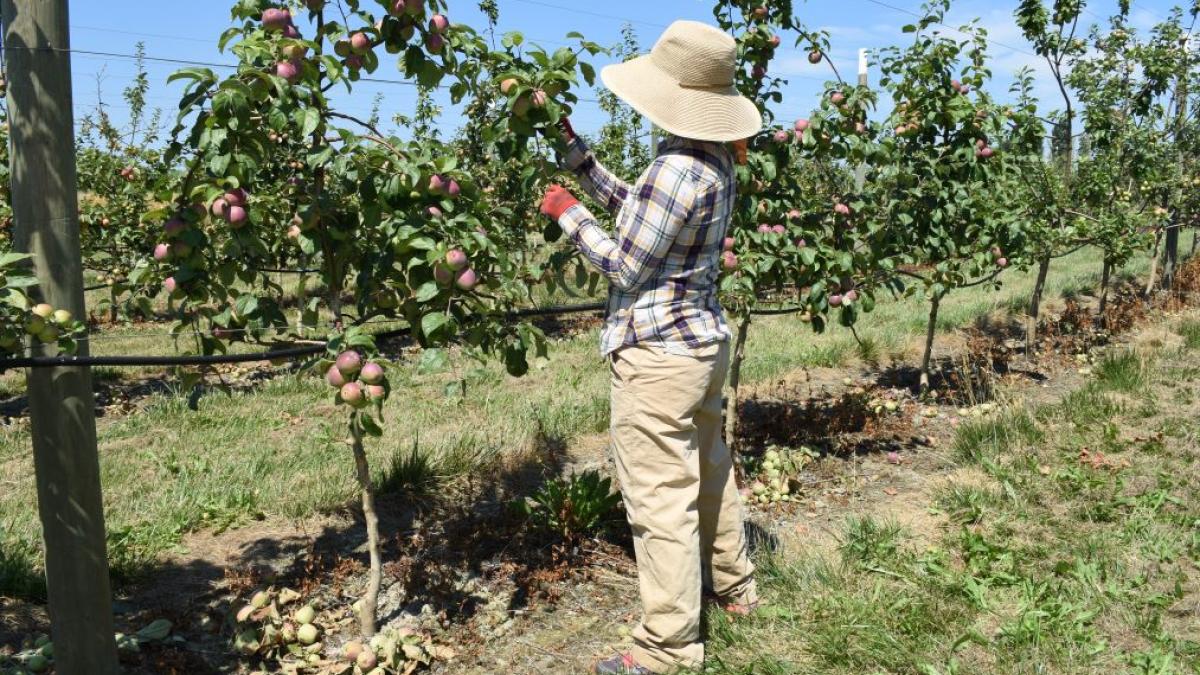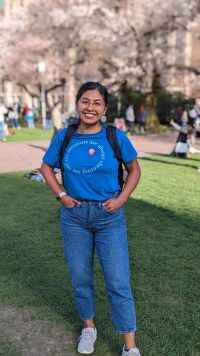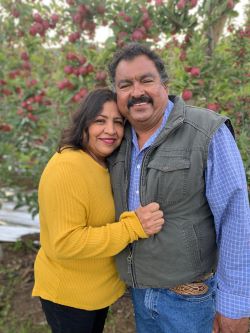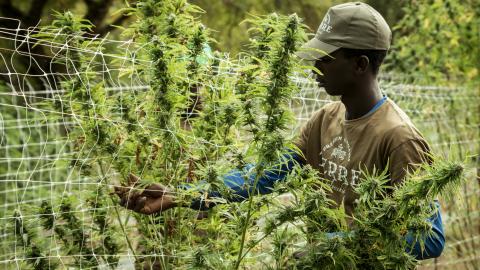
April 5, 2023
Érica Chavez Santos, a PhD candidate in occupational health services research (OHSR) and former NWCOHS trainee, is researching the association of labor and social determinant-related laws and agricultural workers’ health. The goal of her work is to address the knowledge gap about the impact of labor laws on agricultural workers’ health.

Personal connection to the research
Chavez Santos grew up in Pateros, a small agricultural town in North Central Washington. She is a Mexicana-Americana first generation college and graduate student and a proud daughter of farmworkers.
She attended the University of Washington (UW) for undergrad and planned to continue to medical school when she discovered the field of public health. After UW, she worked as an AmeriCorps Patient Navigator at Sea Mar Community Health Centers and supported patients with their non-clinical concerns. She helped them access food, housing, resources for undocumented folks, and medicine when they did not have health insurance. Because of this experience, Chavez Santos became increasingly frustrated with our inequitable and inaccessible social and health care systems.
As a result, she decided to pursue an MPH at Mailman School of Public Health at Columbia University. While at Columbia, she became interested in agricultural exceptionalism – the discrimination against agricultural workers in labor laws. She returned to UW to study how labor laws (or the lack of them) affect agricultural workers’ health.
Learning from the community
Last quarter Chavez Santos and her team conducted the qualitative portion of her study. They interviewed seven key informants (worker advocates, researchers, community leaders, etc.) and 32 agricultural workers from the eastern Washington counties of Grant, Okanogan, Franklin, and Yakima. From these conversations, she learned that workplace environments vary greatly depending on the employer in terms of in access to training, personal protection equipment, worker rights information, and access to water and a restroom. The stories her team heard highlight how resilient and hard-working agricultural workers are, how much they enjoy their work and are proud of what they do. “Ultimately, they [agricultural workers] just want to feel safe and respected at work,” says Chavez Santos.
Next steps
Next, Chavez Santos will review laws that expand and/or exclude agricultural workers at the state-level. She will compile these state-level laws to create a labor law equity index (LLEI). Together with National Agricultural Workers Survey data, she will use the LLEI to examine the association between these laws and agricultural worker health indicators such as workplace environment, chronic health conditions, mental health, and barriers to health care services.
Tools for change
The study results will help researchers and labor policymakers make evidence-based and strategic changes to labor and social laws and their enforcement by understanding these laws’ role in agricultural workers’ health. With policy change, states can provide agricultural workers access to benefits and resources to reduce exposure to occupational health risks and enhance overall well-being. Additionally, the LLEI she creates can be a tool for labor justice organizations and legislators to understand the role laws play in other occupations.
Final reflections
Chavez Santos is quick to point out that her background is the lens’ through which she works and is what motivates her to share what she learns with her family and community.

“One of the beautiful things about qualitative work is getting to interact and work with the people most affected…People are so generous with their time and because I’m also from the same community, I look like them, it’s easy for them to see their daughters, niece, or other family in me. I’ve been really touched at how willing people have been to be a part of this study, it wouldn’t be possible without them.”
Chavez Santos thanks her research team, Amy Hernandez and Ricardo Moreno, UW Public Health undergrads, and Miriam Flores-Moreno, a first year PhD student in epidemiology for their work. She also appreciates her dissertation chair, Dr. Barbara Baquero, committee members, Drs. Jeanne Sears, Heather Hill, and June Spector.
Speaking on Dr. Baquero, Chavez Santos explains that she “….not only values the type of community-oriented research I wanted to focus on for my dissertation but also understands where I’m coming from as a woman of color in academia and what that brings in navigating these spaces.”
See other blog posts highlighting Érica Chavez Santos’s work:
Turning Down the Heat for Agriculture Workers (April 2020)
NWCOHS trainee reflects on community outreach and research dissemination (July 2021)
Cover photo credit: Sarah Fish, UW DEOHS, PNASH.




